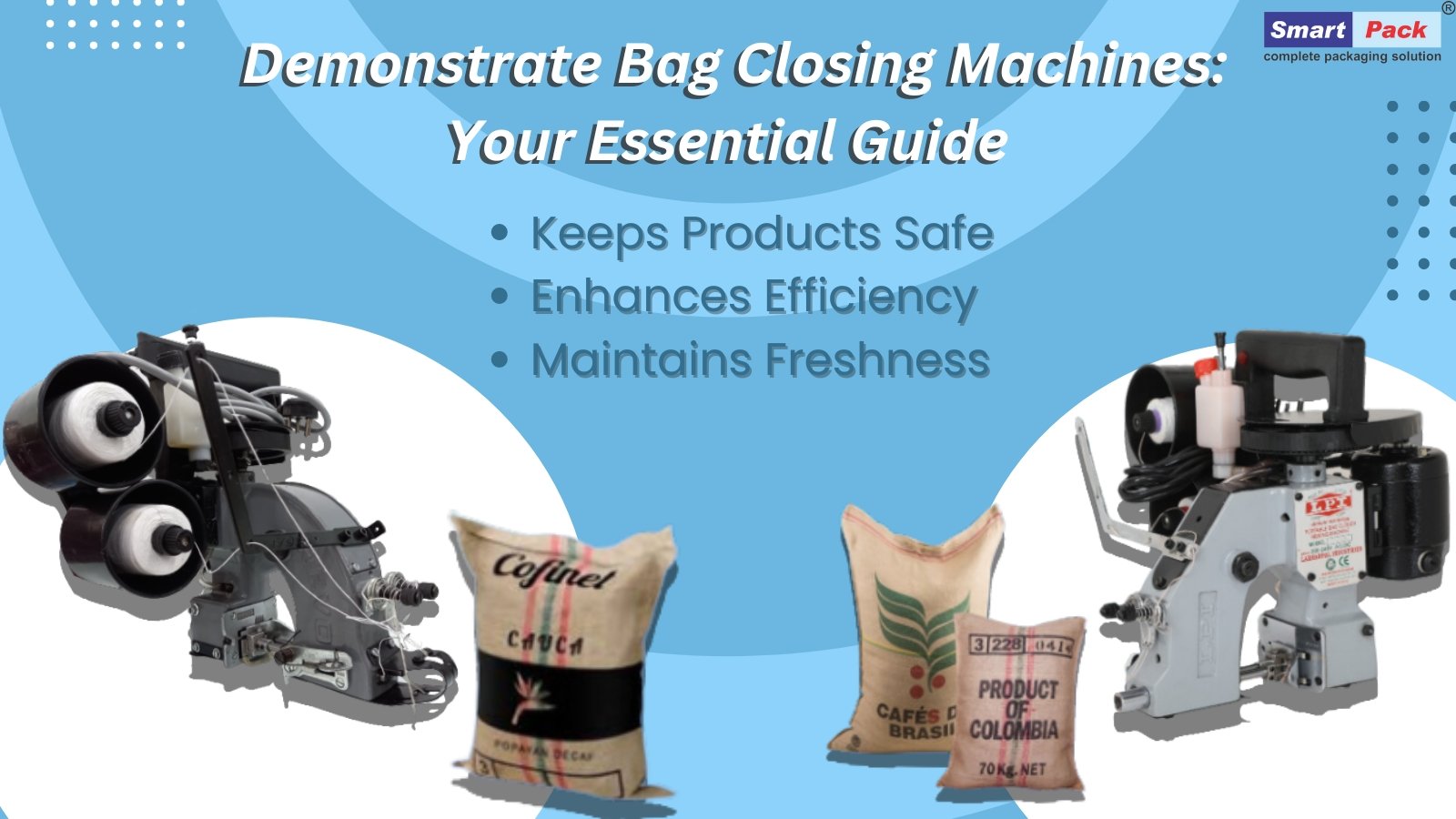In the busy world of factories and industries, there’s a quiet super machine working actively to ensure products are securely packaged and ready for distribution. Enter the bag closing machine – a fundamental tool in the area of packaging. Let’s start on a journey to understand what bag closing machines are, why they matter, and how they’re utilized in various industries, particularly for packing polypropylene (PP) bags, jute bags, and more.
What Exactly is a Bag Closing Machine?
Picture this: you’ve got a sack full of goods, be it grains, seeds, or textiles, and you need to seal it shut securely. That’s where the bag closing machine comes into play. These machines are specially designed to seal bags, pouches, or sacks containing all sorts of materials. They employ different techniques like sewing, heat sealing, or adhesive sealing to get the job done right.
Why Are Bag Closing Machines Essential?
Ever received a torn bag of flour or spilled seeds? Bag closing machines prevent such reverse . Here’s why they’re indispensable:
1. Keeps Products Safe: Whether it’s food, chemicals, or building materials, bag closing machines ensure products stay safe and intact during storage, transportation, and handling.
2. Enhances Efficiency: These machines automate the sealing process, saving time and labor. Imagine manually stitching or sealing hundreds of bags – a tedious task indeed!
3. Maintains Freshness: In industries like food processing, sealing bags promptly helps preserve freshness, flavor, and quality, keeping customers satisfied.
Applications Across Industries
Bag closing machines are versatile creatures, finding homes in a myriad of industries:
1. Food Processing: From rice to flour and everything in between, bag closing machines seal bags of food products, maintaining hygiene and freshness.
2. Agriculture: In the fields of farming and agriculture, these machines seal sacks of seeds, fertilizers, and animal feed, safeguarding them from moisture and pests.
3. Chemical Industry: Chemicals and powders require secure packaging to prevent leaks or contamination. Bag closing machines seal these bags with precision and care.
4. Construction: Cement, sand, and gravel are heavy-duty materials, and their bags need a reliable seal to withstand rough handling. Bag closing machines do just that.
5. Textiles: Fabrics, garments, and yarns are delicately handled by bag closing machines, ensuring they reach their destinations undamaged.
6. Retail: Ever bought snacks or toiletries in neatly sealed bags? Bag closing machines add that final touch of professionalism to retail packaging.
Types of Bag Closing Machines
Bag closing machines come in different flavors, each suited for specific needs:
1. Sewing Machines: These machines stitch bags shut using threads, perfect for sealing jute or woven bags commonly used in agriculture and construction.
2. Heat Sealing Machines: Ideal for plastic bags, these machines use heat to fuse the bag’s opening, creating a tight seal that’s resistant to tampering and spillage.
3. Adhesive Sealing Machines: Applying adhesive or glue, these machines seal paper or plastic bags efficiently, ensuring a secure closure.
Choosing the Right Machine
Selecting the perfect bag closing machine requires careful consideration:
1. Bag Material: Determine the type of bags you’ll be sealing – plastic, jute, or woven – to choose the appropriate sealing mechanism.
2. Production Volume: Consider your production capacity and output requirements to select a machine that can keep up with demand.
3. Automation Level: Decide whether you need a fully automatic, semi-automatic, or manual machine based on your workload and budget.
4. Durability: Invest in a machine from a reputable manufacturer known for producing durable equipment that can withstand ultra-careful industrial use.
Maintenance Matters
To keep your bag closing machine humming along smoothly, regular maintenance is key:
1. Cleanliness: Keep the machine clean and free of debris to prevent malfunctions and ensure optimal performance.
2. Lubrication: Regularly lubricate moving parts to reduce friction and extend the machine’s lifespan.
3. Inspections: Periodically inspect the machine for signs of wear or damage, addressing any issues promptly to avoid downtime.
Bag closing machines may not control the spotlight, but they’re the super hero of packaging, ensuring products reach consumers in pristine condition. Whether it’s sealing bags of grains, chemicals, or textiles, these machines play a major role in maintaining product quality and integrity throughout the supply chain. So, the next time you see a neatly sealed bag, remember the silent workhorse behind it – the bag closing machine.

